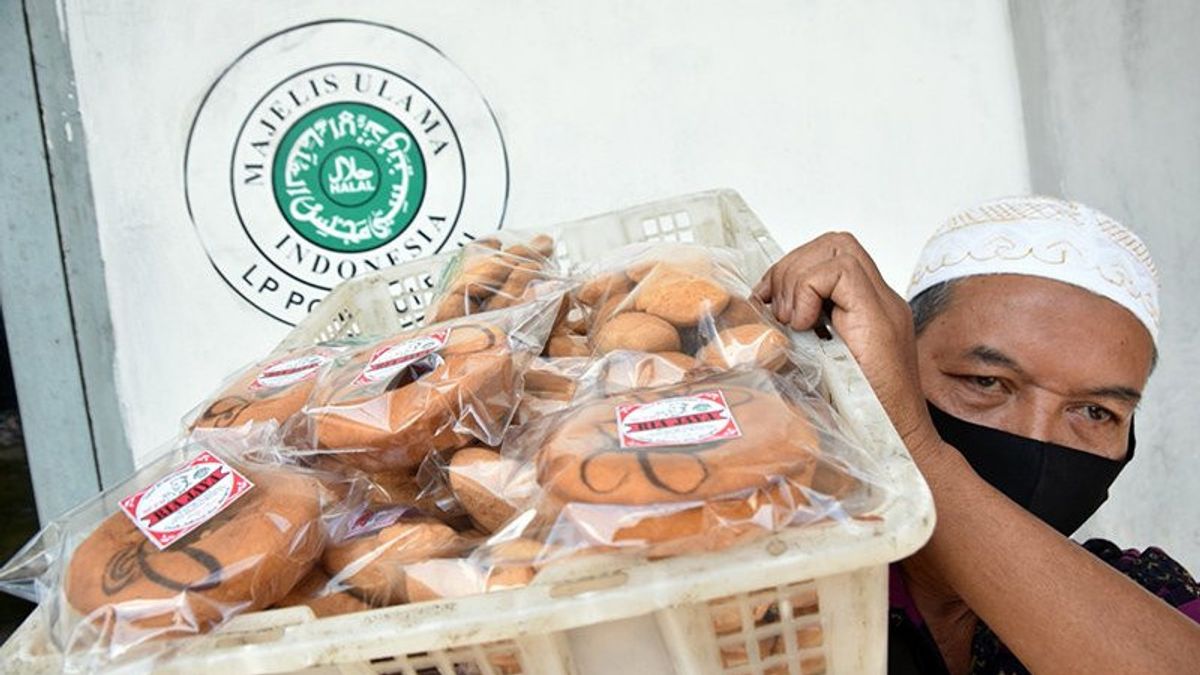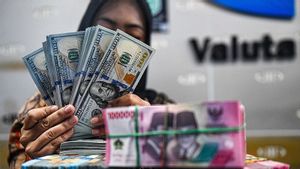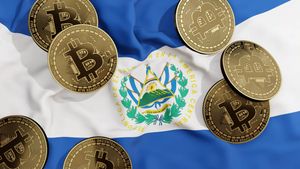JAKARTA - Director of Indonesia Development and Islamic Studies (IDEAS) Yusuf Wibisono said the government needed to determine the focus of the development of the halal industry in Indonesia.
Because there are many sectors, opportunities from the organic halal industry can be developed.
As is known, the government is trying to encourage Indonesia to become a producer of the world's halal industry.
This desire is supported by the demographic bonus and Indonesia as the country with the largest Muslim population in the world.
"The first good step is to first determine the focus where, the big halal market, we set a focus. So a big player in the world, first determine where to focus, if everything is taken the success rate is low," Yusuf said in Jakarta, Monday, December 12.
Yusuf said the total population of the world who are Muslim is around 1.8 billion. Meanwhile, in Indonesia alone 90 percent of the 270 million population are Muslims.
Yusuf said their need for sharia products or services, ranging from food-drinking, clothing, cosmetics to halal tourism, was very large.
According to him, Indonesia has a great opportunity to become a player.
In fact, Yusuf continued, a number of other countries have explored halal potential. For example, South Korea and Japan, these two countries offer halal tourism.
Meanwhile, Malaysia is engaged in sharia and Chinese banking with sharia fashion production.
"This large market is not only domestic but the global market. If we are serious about working on the potential market, we can become big players at the global level," he said.
Yusuf said, if the government wants to focus on working on halal tourism such as South Korea and Japan, then standardization and branding are needed.
Yusuf explained that halal tourism is to make tourists feel comfortable, and get halal food, including places of worship that are comfortable.
"If we want to see the potential of the domestic market, of course halal food. For domestic and external markets, halal tourism, because our tourist destinations are very complete, natural tourism, unique culture, culinary tourism are very diverse, marine tourism, very exotic. Muslim tourists directed to halal tourism is very easy," explained Yusuf. Not only that, said Yusuf, the halal industry must also be followed by the development of halal ecosystems other than certification matters. For example, how a hotel does not just have halal certification, but also human resources are ready with a halal ecosystem.
Supporting Resources
Meanwhile, the Director of Research and Innovation Utilization at Ministries/Institutions, Communities, Micro, Small and Medium Enterprises, the National Research and Innovation Agency (BRIN) Dadan Nugraha revealed that Indonesia has great opportunities and potential to triumph in the world halal industry.
"In my opinion, Indonesia has a great opportunity to become a major player in the world halal industry," he said.
According to Dadan, Indonesia has abundant capital in the industry with biodiversity and natural resource wealth (SDA).
This will greatly support the halal industry in providing raw materials.
"The reason is at least because Indonesia has abundant biodiversity and natural resources as raw material for halal products, both for food, medicine, cosmetics, and other fields," he said.
However, Dadan assessed, Indonesia's potential and opportunities in the halal industry must overcome the challenge of being a major player in the world.
"The challenge is how we can encourage the SDA so that it has an added value," he said.
Therefore, Dadan suggested that the government boost innovation and research in the halal industry, in addition to the government, it is also worth encouraging the strengthening of the halal industry ecosystem and providing regulations that favor the halal industry.
"This is where research and technology can play a role. The use of research and innovation results in MSMEs and the halal product industry is one of the determinants. In addition, regulatory support to strengthen the halal industry ecosystem is also important," he said.
Previously, Coordinating Minister for Economic Affairs Airlangga Hartarto said the government continues to encourage the realization of the vision of 'Indonesia as the Leading Halal Producer in the World'.
With the largest demographic bonus and Muslim population in the world, Indonesia is also able to become the largest market for halal products in the world.
"Indonesia, as the largest Muslim home, has a population of 229.6 million in 2020, has Muslim spending (for halal products and services) reaching 184 billion US dollars in 2020 and is estimated in 2025 to be 281.6 billion dollars. So this is a big market," said Airlangga.
The English, Chinese, Japanese, Arabic, and French versions are automatically generated by the AI. So there may still be inaccuracies in translating, please always see Indonesian as our main language. (system supported by DigitalSiber.id)













